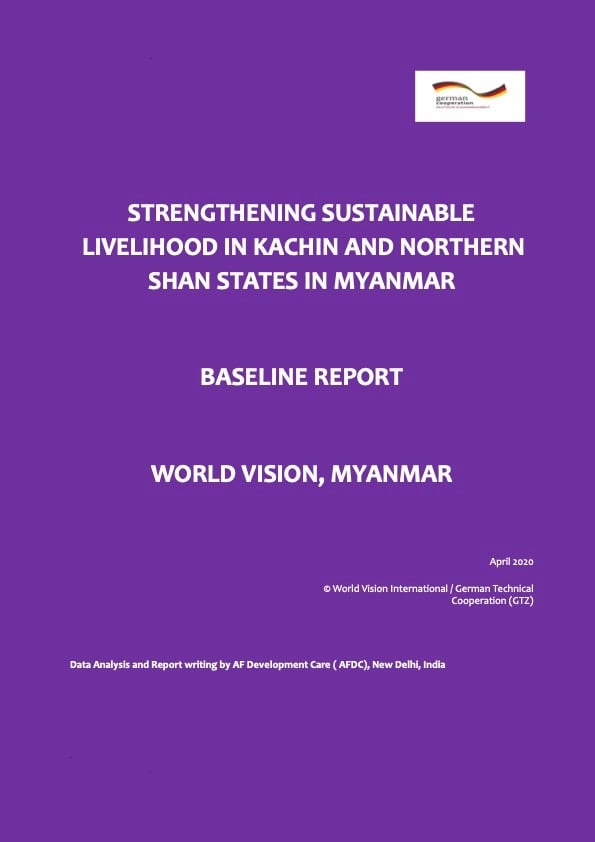Research, Monitoring, Evaluation, & Learning (RMEL) Solutions
At AFDC, we deliver cutting-edge Monitoring, Evaluation, and Learning (MEL) solutions tailored to the unique needs of social development organisations worldwide. Our global network of 60 senior freelance experts collaborates on a project-by-project basis, bringing unparalleled expertise and flexibility to every initiative. By integrating advanced qualitative and quantitative research methodologies, we ensure the collection of precise, reliable data. Our robust analytical techniques transform this data into actionable insights, enabling organizations to make informed decisions, measure impact with precision, and drive meaningful change with confidence. Partner with AFDC to elevate your social development initiatives on a global scale.
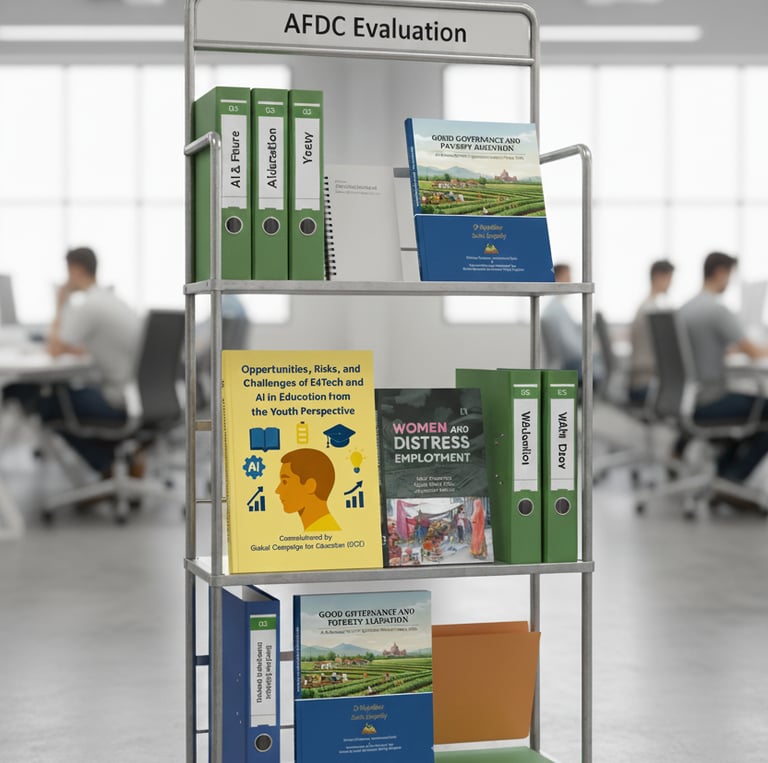

50+
30+
Countries
Evaluation Projects
Evaluations
Explore our comprehensive evaluation reports and history.
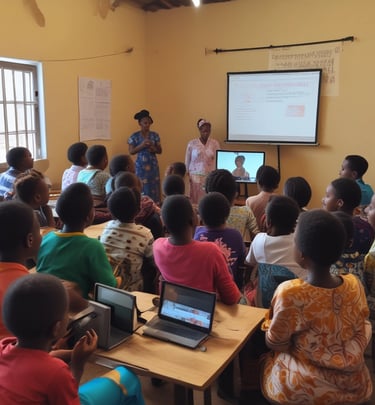

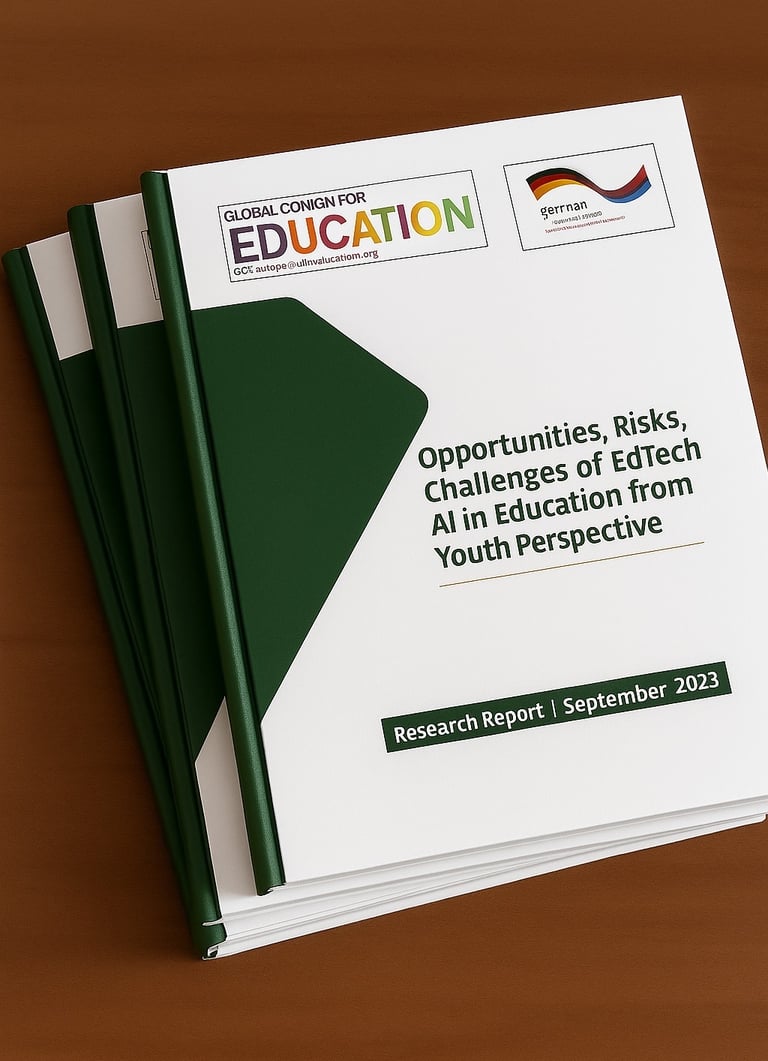

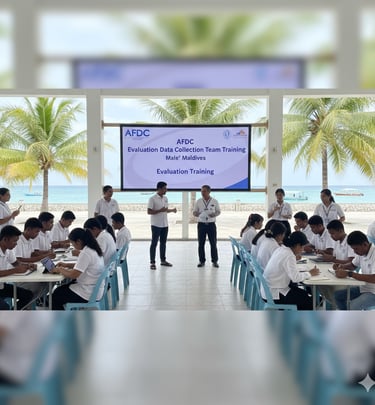

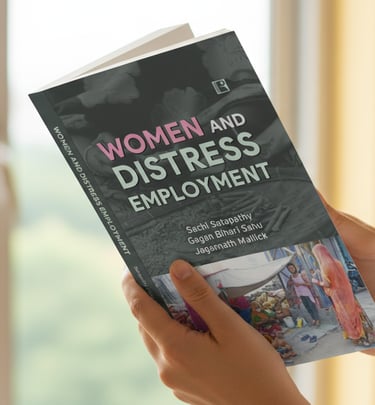

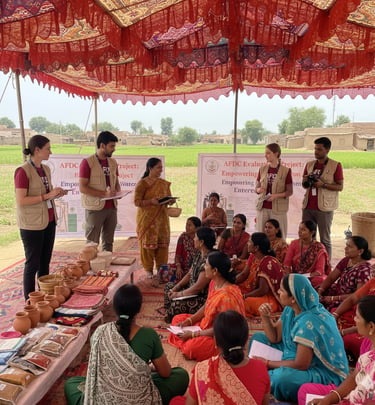

Key Evaluation Projects (2025)
The Artificial Intelligence (AI), Youth, and Education Evaluation, led for Global Campaign for Education (GCE), South Africa, and GIZ, Germany, focused on Africa with involvement in 33 countries in the global south, leading a multi-country evaluation collaborating with 40 GCE Alliance partners to assess the role of artificial intelligence in education .
The Child Protection Evaluation, managed for International Catholic Migration Commission (ICMC), USAID, UNICEF, spanned Gaza (Palestinian Territories), Lebanon, Myanmar, Democratic Republic of Congo (DRC), Papua New Guinea (PNG), leading the evaluation of a project to strengthen child protection frameworks in conflict-affected regions .
The Asia Partner Landscape Project on NTDs, handled for American Leprosy Mission (ALM), USA, involved India, Nepal, Sri Lanka, Myanmar, Philippines, leading a multi-country evaluation to enhance MEAL systems for a faith-based global charity focused on neglected tropical diseases.
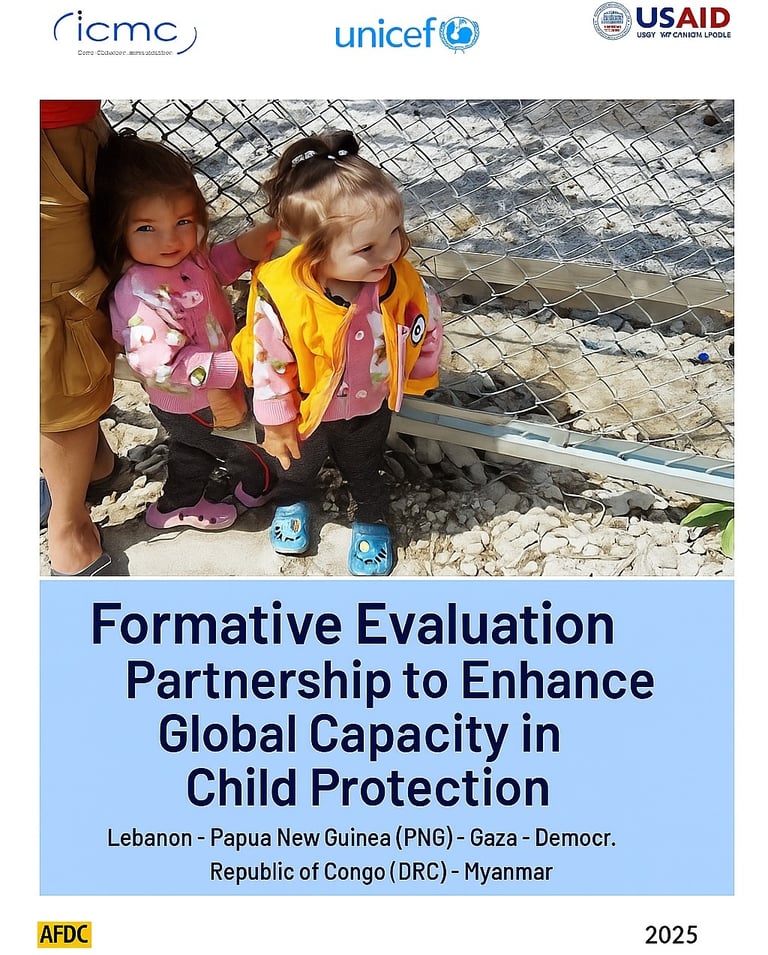

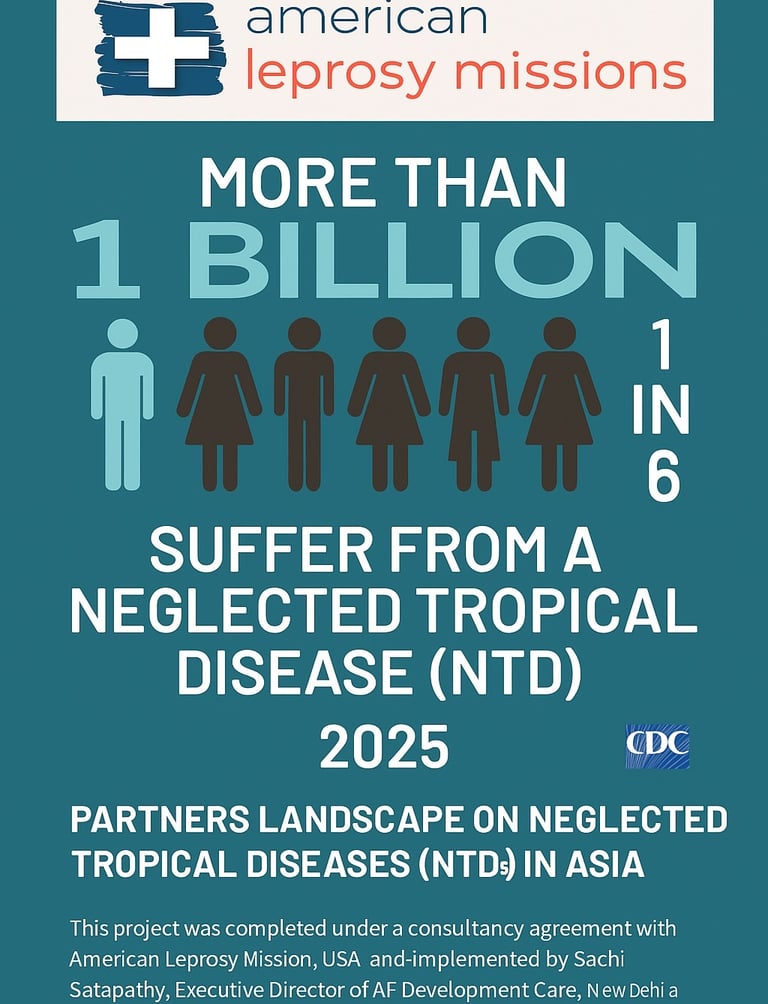


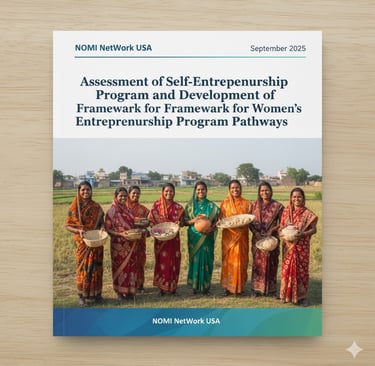
The Women Workforce Development Evaluation, conducted for NOMI Network, USA, took place in India, involving an evaluation of a women entrepreneurship program in the poorest tribal regions, finalizing the program process document, and designing a new framework for scaling up women’s economic empowerment initiatives.
The Impact Evaluation of WASH ULBC Project, executed for Welthungerhilfe (WHH), Germany, was based in India (Madhya Pradesh and Uttar Pradesh), leading a comprehensive evaluation to develop an information package and a new project proposal for scaling up urban low-cost sanitation initiatives, with a new WASH and Civil Society Development collaboration.
The Multi-Country PSEAH Assessment, directed for JQAN, Japan , was conducted in India and Myanmar, directing a comprehensive MEAL assessment on protection from sexual exploitation and abuse to shape regional advocacy and policy (SDG 5.3).
The South and East Asia Tobacco Control Evaluation, part of a regional initiative commissioned as part of consultancy agreement with Global Campaign to End Smoking, USA, covered South and East Asia, designing a mixed-methods evaluation highlighting tobacco use among rural women to drive gender-sensitive policy actions (SDG 3.3).
The National Evaluation of Women’s Rights Programme for Beedi Rollers, as a national initiative , was based in India, conducting a mixed-methods evaluation advocating for improved working conditions and livelihoods for women beedi rollers (SDG 8).
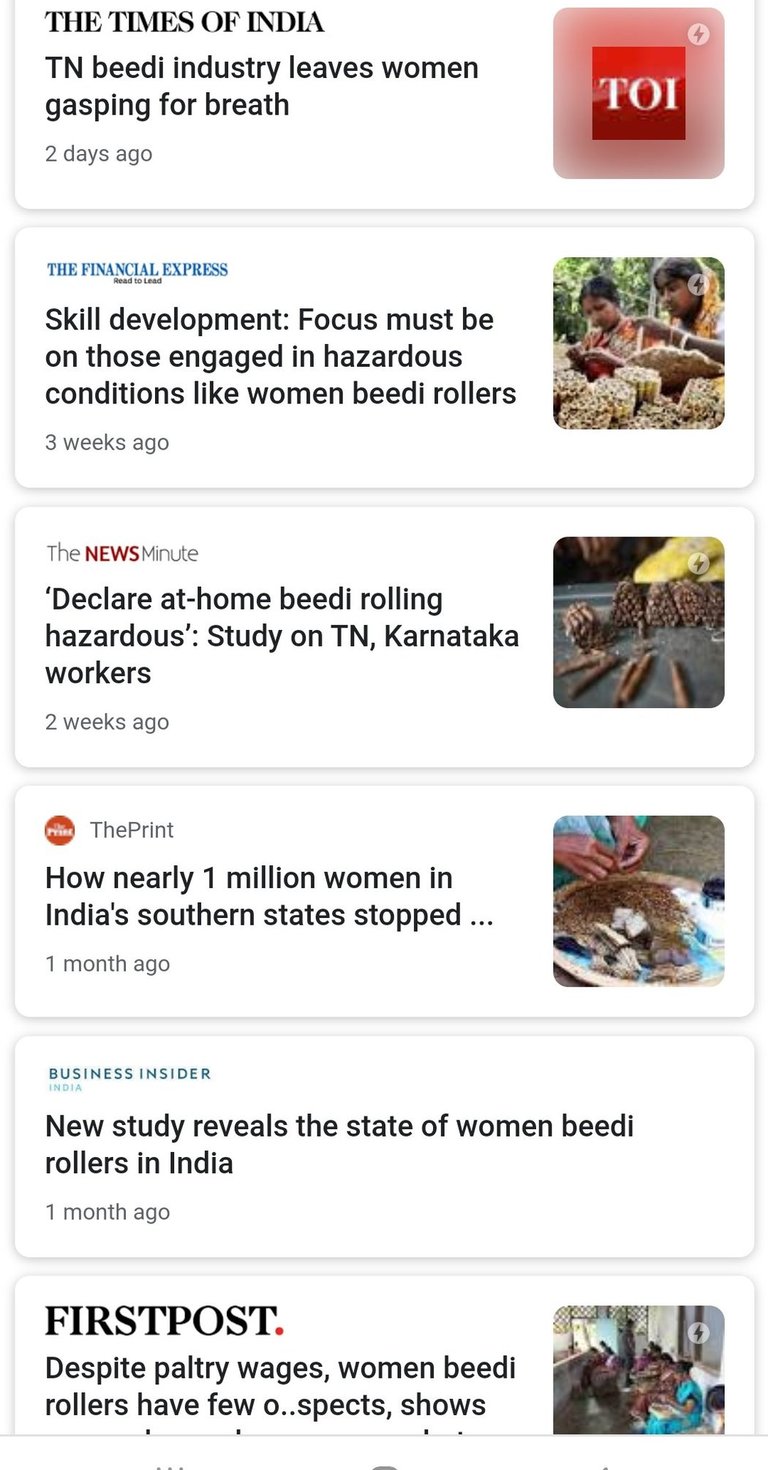

The Sustainable Livelihoods Baseline Survey, developed for GTZ (now GIZ)/BMZ, World Vision, took place in Myanmar and Vietnam, developing MEAL indicators for long-term impact tracking in sustainable livelihoods programs.
The Maldives Youth Tobacco Survey & Organizational Capacity Assessment, part of a public health effort , occurred in Maldives, providing evidence-based guidance to strengthen public health efforts and policy formulation on youth tobacco use (SDG 3).
